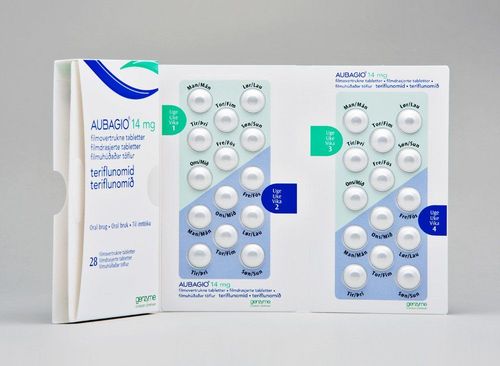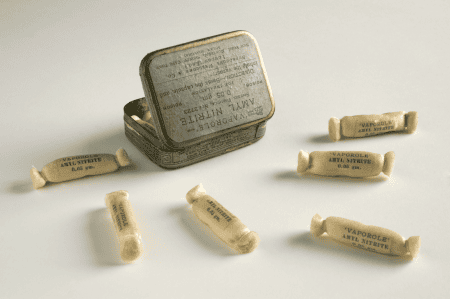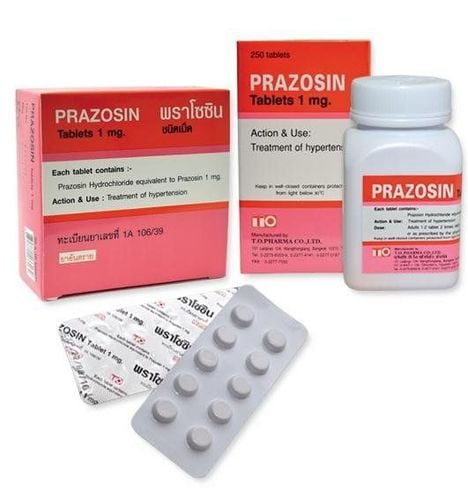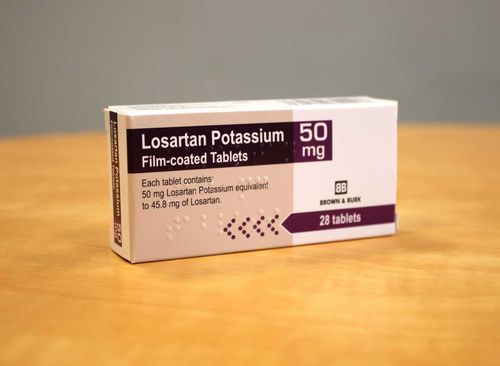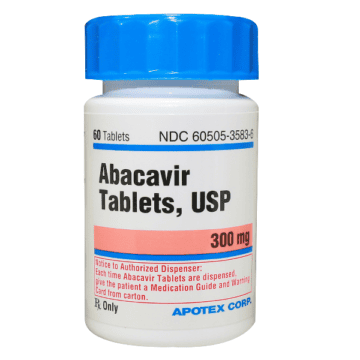This is an automatically translated article.
Hydralazine is used with or without other medicines to treat high blood pressure. Controlling blood pressure helps prevent strokes, heart attacks, and kidney problems. Hydralazine is known as a vasodilator. It works by relaxing blood vessels so that blood can flow through the body more easily.
1. Indications and contraindications of Hydralazine
Hydralazine is indicated in the following cases:
High blood pressure Chronic heart failure Hydralazine is contraindicated in the following cases:
Heart attack within the last 30 days Coronary artery disease Stroke Low blood pressure A condition with lupus-like symptoms High pressure in the skull Slow decrease in blood volume Acetylator
2. How to use Hydralazine
Hydralazine is taken by mouth with or without food, usually 2 to 4 times daily or as directed by your doctor. The dose of Hydralazine is calculated based on your medical condition and response to treatment. Your doctor may tell you to start with a low dose and gradually increase your dose. Use Hydralazine regularly to get the most benefit from it. To avoid forgetting to take your medicine, take it at the same times each day. Keep taking Hydralazine even if you feel well. It may take up to several weeks before you get the full benefit of this medicine. Do not stop taking Hydralazine without consulting your doctor, as some conditions can be made worse by stopping the medicine suddenly. Your dose of Hydralazine may need to be tapered off before stopping completely. Tell your doctor if your condition worsens (for example, your blood pressure readings increase) after using Hydralazine. Lifestyle changes such as a stress reduction program, exercise, and diet changes Diet can help Hydralazine work better. Lab tests such as a complete blood count may be performed periodically to monitor your progress or check for Hydralazine side effects. Check your blood pressure regularly while taking Hydralazine. Learn how to self-monitor your blood pressure and share test results with your doctor.
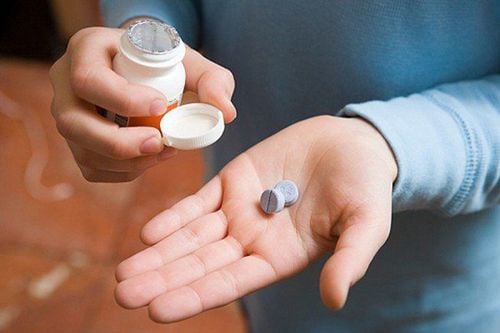
Thuốc Hydralazine được sử dụng bằng đường uống theo chỉ định của bác sĩ
3. Hydralazine side effects
While using Hydralazine, you may experience headache, heart palpitations/palpitations, loss of appetite, nausea, vomiting, diarrhea or dizziness as your body has not yet adapted to the medicine. If any of these side effects persist or get worse, tell your doctor right away.
To reduce the risk of dizziness while using Hydralazine, get up slowly when getting up from a sitting or lying position.
Remember that your doctor has prescribed Hydralazine because they have judged that the benefit to you outweighs the risk of side effects. Many people use Hydralazine and do not experience any serious side effects.
Hydralazine rarely causes nerve problems. Tell your doctor right away if you feel numbness or tingling while using this medicine. Your doctor may recommend a vitamin B6 (pyridoxine) supplement.
Tell your doctor right away if you have any serious side effects of Hydralazine, including: Severe fatigue, joint pain/swelling, rash on the nose and cheeks, swollen glands, signs of kidney problems, signs of infection (such as fever, chills, persistent sore throat), easy bruising/bleeding.
Get medical help right away if you have any very serious side effects of Hydralazine, including: Chest/jaw/left arm pain.
A very serious allergic reaction to Hydralazine is very rare. However, if you notice any symptoms of a serious allergic reaction to Hydralazine, including: Rash, itching/swelling (especially of the face/tongue/throat), trouble breathing, dizziness , get medical help right away.
Below are Hydralazine side effects by likelihood.
Common side effects of Hydralazine include:
Decreased appetite Headache Heart pounding Nausea Vomiting Diarrhea Heart palpitations Uncommon side effects of Hydralazine include:
Peripheral neuropathy Angina Itching Urticaria A condition with lupus-like symptoms Skin rash Visible water retention Excessive tearing Low blood pressure Nasal congestion Constipation Dizziness Temporary redness of the face and neck Shortness of breath

Thuốc Hydralazine có thể gây tình trạng khó thở cho người dùng
Rare side effects of Hydralazine include:
Anemia Large brown or purple skin spots Very low levels of granulocys Hepatitis Glomerulonephritis Swollen lymph nodes Confusion Confusion Pink eyes Joint pain Fever Chills Muscle tremors Difficult or painful urination Anxiety This is not a complete list of possible side effects release of the drug Hydralazine. If you notice other effects of Hydralazine not listed above, contact your doctor right away.
4. Precautions for Hydralazine side effects
Before taking hydralazine, tell your doctor if you are allergic to this medicine and any other allergies you may have. Hydralazine may contain inactive ingredients that can cause allergic reactions or other problems.
Before using Hydralazine, tell your doctor your medical history, especially of: Heart problems (eg, coronary artery disease, recent heart attack), blood problems, stroke , kidney problems.
Hydralazine can make you dizzy and alcohol and marijuana can make you more dizzy. Do not drive, use machines, or do anything that requires alertness while using Hydralazine, until you can do so safely.
Before surgery, tell your doctor that you are taking Hydralazine.
Older adults may be more sensitive to the side effects of Hydralazine, especially dizziness, which may increase the risk of falls.
For women during pregnancy, Hydralazine should be used only when clearly needed. Discuss the risks and benefits of using Hydralazine with your doctor.
Hydralazine passes into breast milk, but is unlikely to harm a nursing baby. However, women who are breastfeeding should take extra.

5. Hydralazine drug interactions
Drug interactions can change the way Hydralazine works or increase your risk of serious side effects. Tell your doctor about all the medicines you use. Do not start, stop, or change the dose of any medicine while using Hydralazine, without your doctor's approval. Some drugs that can interact with Hydralazine are: MAO inhibitors (isocarboxazid, linezolid, methylene blue, moclobemide, phenelzine, procarbazine, rasagiline, safinamide, selegiline, tranylcypromine).
Some products have ingredients that may increase your heart rate or blood pressure or worsen your heart failure, which will affect the effectiveness of Hydralazine.
6. What to do if you overdose or forget to take Hydralazine?
If you or someone else has overdosed on Hydralazine and has severe symptoms such as fainting or difficulty breathing, call 911 immediately. Symptoms of Hydralazine overdose may include: Severe dizziness, fainting, flushing, chest/jaw/left arm pain, irregular heartbeat.
If you miss a dose of Hydralazine, take it as soon as you remember. If it is almost time for your next dose of Hydralazine, skip the missed dose. Use your next dose of Hydralazine at the usual time, do not double the usual dose.
7. How to store Hydralazine
Store Hydralazine at room temperature, away from light and moisture, do not store in the bathroom, keep it away from children and pets. Dispose of Hydralazine appropriately when it has expired or is no longer needed.
Please dial HOTLINE for more information or register for an appointment HERE. Download MyVinmec app to make appointments faster and to manage your bookings easily.
Reference source: webmd.com



